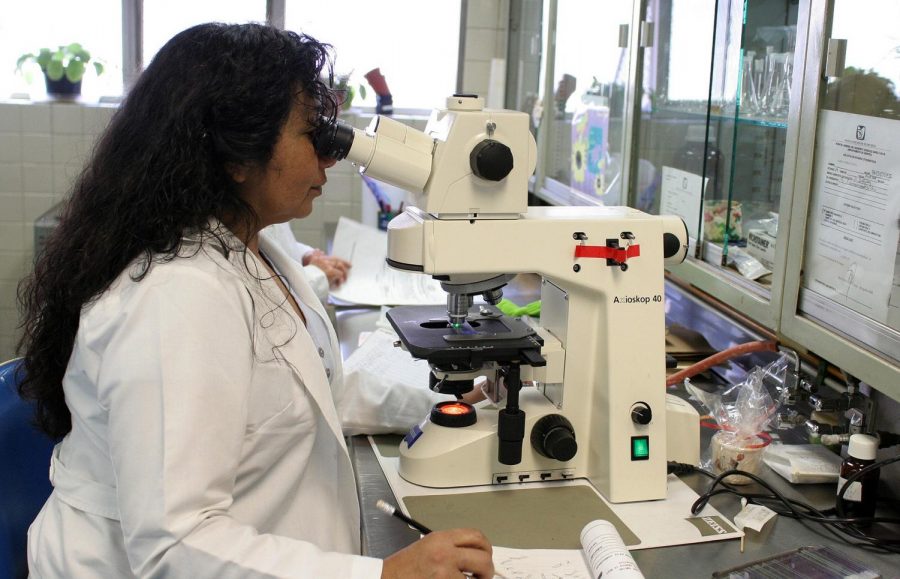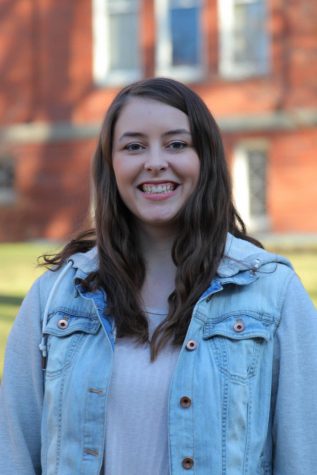Pharmacy students, COVID-19, and county uncertainty
Volunteers provided with personal protective equipment, told to practice social distancing
April 22, 2020
Despite courses being online due to COVID-19, three WSU pharmacy students were able to receive some on-the-job training as volunteers.
Lee Roy Esposo, a third-year WSU pharmacy student, and two of his peers volunteered for the recently set up coronavirus intake center at the Spokane County Interstate Fairgrounds.
The students helped to regulate the screening process for patients, as well as direct the flow of traffic.
“I’m still really young. I’m still fairly healthy,” Jennifer Tu, volunteer and WSU pharmacy graduate student, said. “I think we’re in a really fragile state right now so I wanted to help out.”
Health providers from Spokane Regional Health, Providence and CHAS Health set up the intake center, which allows people who feel sick an accessible way to test for COVID-19, according to an article from The Spokesman-Review.
Esposo’s tasks included collecting basic information from patients and answering any questions people had about the process.
After his first time volunteering, Esposo started to train others for the same tasks. He has volunteered three times in total.
“My mom was not thrilled,” Esposo said. “But my friends who went with me were really excited to go out there.”
The actual screening is conducted by medical professionals that volunteer from various health systems in the area.
Esposo said the medical team provided the proper personal protective equipment and they practice social distancing.
A father and two kids approached the intake enter with worries about their health and the screening process, Esposo said. He was able to inform the family about the process.
“We had a lot of people who came in tears,” he said. “But being able to give them some comfort and peace of mind is really rewarding.”
Michelle Baek, pharmacy graduate student who is responsible for directing traffic, said she also felt prepared through her classes to be able to talk to the people driving by.
Baek received an email from WSU with the opportunity to volunteer. She said she was inspired by her family back in Korea to volunteer because she witnessed how that country handled COVID-19 well.
“As an international student I can’t work off-campus so my patient care options are limited,” she said. “I thought this was a great opportunity to kind of put myself out there.”
Esposo said some of the common questions coming from patients included: can I recover from this, will my family be okay and what the testing process is like.
The testing itself can be fairly uncomfortable since a swab must go farther up in the nose than what is expected, he said. Esposo likes to call it a “tickle your brain test.”
It may take a few days for test results to come in, depending on how many people are being tested, he said.
“It kind of weighs heavily on people’s minds,” Esposo said.
Tu volunteered two times at the site and plans to make more trips next semester. Her tasks included directing traffic because the fairgrounds are a large area and it can be easy to get lost.
When she volunteered during the beginning operations of the site, she said the flow of traffic was slow. However, during the time she went on April 11, there were plenty of cars.
“I thought it was really fantastic to see all the people from different walks of life who came out to volunteer,” Tu said.
She said volunteers included a range of people from medical students and doctors to civilians.
More information about the Spokane Interstate Fairgrounds screening process can be found on its website.
“When push came to shove I really didn’t want to just sit around and do nothing,” Esposo said.










